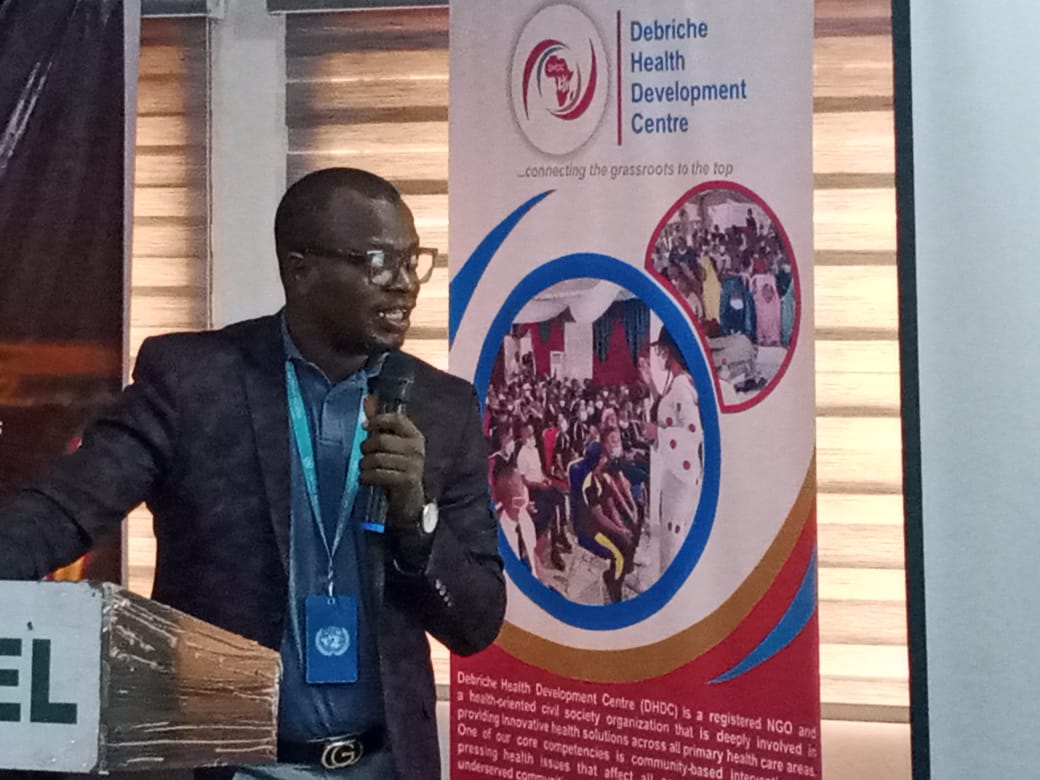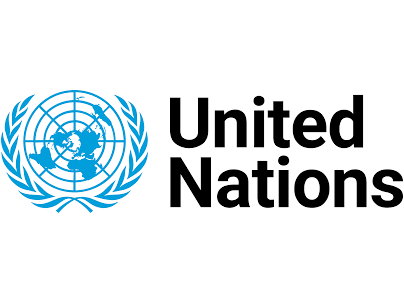Health
Stakeholders Call for More Youths Inclusion in the Fight Against TB

By Laide Akinboade, Abuja
Stakeholders in the Health Sector, at the weekend called for more youths engagement in the fight against Tuberculosis, TB, challenges in Nigeria.
The theme of the workshop is ‘Empowering Young Champions to End TB:Flag off of the one minute silence for TB campaign’.
Among those who spoke at Debriche Health Development Center, DHDC 2024 volunteers workshop with support from Stop TB Partnership Geneva, in Abuja included, Director of Public Health, Ministry of Health, Dr.
Chukwuma Anyaike, Chief Austin Obeifuna, Vice Board Chair, Stop T partnership, Geneva, Dr. Amos Omoniyi, National professional officer, World Health Organization, WHO, Nigeria, Dr. Jemila Amin, Head of ACSM unit, National Tuberculosis and Leprosy, and Buruli Ulcer Control Program, Nigeria, etc, in Abuja.Dr. Omoniyi, of WHO, who was represented by Dr Emmanuel Opeyemi, a national professional officer, WHO, in his presentation, titled ‘Role of Young Champions in advocacy, communication,social mobilization to end TB in Nigeria’, lamented the fact that in Nigeria, people die of TB in every 5 minutes, Nigeria is first in Africa .
He said 285,561, (59.6%), are notified our of 479,000 cases, 19,989 (26%), children are notified our of reported cases.
Nigeria among 8 countries that accounted for two third of global TB case.
According to him, “TB is a concerning disease and 1 person is infected every minute.TB is number one killer in Nigeria today oner person die of TB every five minutes , that means in 1 hour about 20 person have gone, on 24 hours
about 480 have died,and this is a disease that has been with us for over 100 years . TB is driven my mal nutrition and HIV, malnutrition is an open secret because Nigeria is poverty capital in the world.
“Only 30% of Nigerians are aware of TB, in terms of right information. 71% of TB patients have to pay for one TB treatment service. The youth sub group are very important in addressing the challenges of TB”.
The WHO professional officer said, even though Nigeria has achieved some feats in its fight against TB, “The youths engagement to fight TB has been sub optima, prior to now, a lot of efforts has on in order to addressing the challenges of TB.
In the past there has been involvement of lots of stakeholders, cross section of the society in addressing the challenges of TB but the involvement of youths who constitute the larger population in the society, is still very sub-optimal and that is why WHO through it ‘one plus one’ youth initiative’ is pushing for more youths involvement and more engagement to be able to address TB challenge.
“Reach one, each one’ , ‘Reach one Teach one’, ‘Teach one for each one’ , initiative. The initiative is a gateway to create the needed social supports (this address issues around discrimination and stigmatization), awareness and mobilization, (this is about been able to reach out to the needed millions of youths that are needed to create awareness)”.
Bethrand Odume is the Executive Director of KNCV Tuberculosis Foundation Nigeria, said it imperative to address the issue of stigma especially in the rural area, through the use of youths in the communities.
“stigma has actually become a key barrier to access to TB care. We know that most of us come from the village. We know that in the village, people actually are not yet informed on the key fundamentals around TB disease. Some feel that it is not curable, some feel
it’s related to witches and witch craft and we all know it’s a preventable disease.
“I think reaching out to people with the right information and empowering them would actually be a major way we will be able to prevent TB sigma. A lot of the youth now are on social media, which is why getting social media influencers, creating some of these apps that would impact on people and can share their opinions and some of these barriers. Stakeholders will be able to address some of these barriers that they face daily in accessing TB care”.
The Executive Director of DHDC,Deborah Ikeh, said her organization is trying to use the youths
their voices, their platforms to mobilise the needed awareness and the needed attention for TB.
She said, “We all know that lot of people do not know that this disease is treatable, curable and preventable. We heard during the presentation that only 30% of people are aware of TB signs and symptoms. This is a huge challenge. And that is why, mobilising young people and empowering them as champions to be advocates is very important because we want to leverage the platform of the young people, the voices, the movement of young people to be able to speak on these issues. For example today, we know that almost everyone is on social media”.
Dr Jamila, from Ministry of Health, said in order to fight the disease effectively the Federal Government, has made
TB tests, TB treatment for six months all free.
“So you can walk into any government facility and get tested and get treated free of charge without having to spend a penny from your pocket” she noted.
Health
UN Women Trains Bauchi Artisans on Biogas Digester Installation

The UN Women says it has trained 20 artisans and seven agricultural extension workers on biogas digester installation, maintenance, and kitchen gardening to boost livelihoods in Bauchi’s rural communities.
The National Coordinator for the UN Women Biogas Projects,
Mr Desmond Osemije, disclosed this on Tuesday at the opening of the training in Bauchi.
Osemije said that the initiative was also designed to tackle climate challenges in rural communities.
He explained that the 20 technicians, primarily plumbers, were being equipped with the skills to install and maintain biogas digesters and will, in turn, train 250 rural women beneficiaries in Bauchi and Dass Local Government Areas.
Osemije further said that 250 rural women would benefit from the biogas digester, comprising 125 each from Bauchi and Dass LGAs.
“Additionally, seven agricultural extension workers are undergoing training to establish kitchen gardens, enabling rural households to grow vegetables and other crops for easy access to fresh food.
“This project seeks to improve the time use of women, boost agricultural productivity and incomes, enhance health standards, reduce deforestation, and contribute significantly to combating climate change,” Osemije said.
He also said that producing low-cost biogas from animal waste would provide rural women with affordable clean energy for cooking, reduce income and time poverty.
It will also lessen their exposure to health hazards and risks of gender-based violence.
Also speaking, Hajiya Marka Abbas, the National Public Relations Officer of the Small Scale Women Farmers Organization of Nigeria, underscored the need for collaboration with UN Women to promote sustainable agricultural practices and a cleaner environment.
She said that the project not only trains women and artisans to install and maintain bio-digesters, but also creates opportunities for income generation and economic independence.
“By converting waste into biogas and organic fertiliser, the project supports a circular economy, lowers greenhouse gas emissions, and combats deforestation.
“The initiative is being implemented in partnership with the Bauchi State Government through the Ministries of Women Affairs and Agriculture,” she said
A participant, Miss Fatima Usman, expressed optimism that the training would enhance her livelihood and pledged to pass on the knowledge to other rural women. (NAN)
FEATURES
Why Genotype Compatibility Matters in Preventing Sickle Cell

Sickle Cell Disease (SCD) is a genetic blood disorder that arises when both parents carry the sickle cell gene, creating a 25 per cent chance of transmitting the disease to their offspring with each pregnancy.
Globally, an estimated 400,000 babies are born annually with SCD.
Medical experts have consistently warned that genotype incompatibility remains the leading cause of new cases and should be a central consideration among intending couples.
According to them, avoiding unions between carriers, especially those with AS and SS genotypes could greatly reduce new incidences, limiting them to carriers alone.
In high-income countries, the average life expectancy for individuals living with SCD is approximately 57 years.
However, the outlook is more severe in Sub-Saharan Africa, where 50 to 80 per cent of children born with the disease die before the age of five.
In contrast, babies born with SCD in the United States have a 95 per cent chance of reaching adulthood.
Given these disparities, experts are unanimous that prevention is the most effective and affordable strategy for eliminating the disease.
Prof. Titus Ibekwe, Provost of the College of Health Sciences, University of Abuja, underscored this view during a recent public lecture in Abuja.
It was titled “The Evolving Therapeutic Landscape in Sickle Cell Disease”.
He emphasised the importance of proactive partner selection based on genotype compatibility.
“Prevention is key in the fight against sickle cell, and this costs nothing.
“It simply means paying close attention when choosing a life partner ensuring that individuals with the AS genotype do not marry another AS.
It is also that an AS does not marry an SS, or two SS individuals do not marry”.
Ibekwe explained that such unions greatly increase the risk of having children with SCD, and that sustained adherence to genotype-based partner selection could drastically reduce, if not eliminate, the disease burden.
Beyond prevention, Ibekwe noted that treatment options for individuals living with the disease have expanded, including advanced therapies such as bone marrow transplantation and gene therapy.
He explained that gene therapy aims to correct the faulty gene responsible for the disease, allowing it to function like a healthy one.
Also speaking on the burden of SCD in Nigeria is Dr Maureen Achebe, Clinical Director of Haematology at Harvard’s Brigham and Women’s Hospital and Associate Professor of Medicine at Harvard Medical School.
She disclosed that Nigeria bears the highest global burden of the disease.
“Every year, 300,000 babies are born with SCD in Sub-Saharan Africa, and 150,000 of them are born in Nigeria alone,” she said.
Achebe outlined this as a major public health concern and warned that, with Nigeria’s high fertility rate, the number is expected to rise greatly by 2030.
She advocated for newborn screening to detect SCD before symptoms begin, noting that babies appear normal at birth but benefit greatly from early diagnosis and care.
“Without early identification and intervention, infants will continue to die of undiagnosed anaemia, pneumococcal sepsis, or severe malaria,” she said.
Achebe noted that the sickle cell trait historically evolved as a natural protection against malaria.
According to her, individuals who carry one sickle cell gene (AS genotype) are less likely to die from severe malaria compared to those without the gene (AA genotype).
“However, those with full-blown SCD suffer from chronic complications, reduced quality of life, poor educational and professional outcomes, and premature mortality,” she said.
Additionally, she emphasised the importance of preventive strategies, urging the use of vaccinations, daily folic acid supplements, and proactive infection control.
She also recommended hydroxyurea as a proven daily treatment that improves survival rates and reduces the severity of symptoms.
While she recognised the promise of gene therapy and bone marrow transplantation, she pointed out their high costs, limited accessibility, and the fact that children under 12 tend to respond better to these treatments.
Achebe clarified that while gene therapy treats the symptoms and effects of the disease, it does not eliminate the sickle cell gene from the patient’s reproductive cells, meaning affected individuals can still pass it to their children.
She warned that the total economic toll of SCD in Sub-Saharan Africa currently stands at over $9.1 billion annually, projected to rise to $10 billion by 2030.
“Tackling SCD requires strong financial and political will to scale up newborn screening and ensure nationwide access to care,” she said.
Achebe further stressed the need for public awareness, early diagnosis, and cultural education to dispel myths surrounding the disease.
“Sickle Cell Disease is a scientifically inherited condition, not caused by witchcraft,” she affirmed.
In the same vein, Prof. Obiageli Nnodu, Director of the Centre of Excellence for Sickle Cell Disease Research and Training (CESRTA), University of Abuja, highlighted the importance of continued research and capacity building.
She explained that CESRTA, established in 2015, has made major progress in clinical and translational research to bridge treatment gaps in Nigeria and beyond.
“Our centre provides platforms for skills development and engages in strategic collaborations with local and international institutions to improve care outcomes,” she said.
Following the 5th Global Congress on Sickle Cell Disease, the centre was upgraded to the National Centre of Excellence for SCD Research.
This is a major milestone in Nigeria’s efforts to combat the disease.
As the world marks World Sickle Cell Day on June 19, experts are calling for a renewed push toward genotype awareness, partner compatibility, and universal newborn screening as critical tools in the fight to eliminate SCD. (NANFeatures)
Health
Contraceptive Pills Can’t Cause Cervical Cancer – Expert

Mrs Roseline Akinlabi, Adolescent and Youth Sexual Reproductive Health Desk Officer, Osun Primary Healthcare Board, says contraceptive pills cannot cause cancer of the cervix in women.
Akinlabi, a certified family planning trainer, said this on Monday in Osogbo during a virtual engagement programme organised by the State Public Health media team in collaboration with a non-governmental organisation, The Challenge Initiative (TCI).
She spoke on “The impacts of Family Planning Myths And Misconceptions on Spacing, Unplanned Pregnancy and Unsafe Abortion”.
The expert, also a registered public health nurse, said that the popular belief that contraceptive pills could encourage infidelity and cause permanent infertility in women was inaccurate.
According to her, contraceptive pills cannot cause cancer of the ovary and the lining of the uterus in women, as being speculated.
“Myths and misconceptions are the major challenge to uptake of family planning in the state and the country at large.
“Various myths and misconceptions about family planning methods have led to high prevalence of teenage pregnancy, high maternal, mortality and morbidity rate, among others.
“These myths and misconceptions often surround family planning methods, creating confusion and hindering access to essential care.
“They negatively impact child spacing and abortion rates by preventing the use of contraceptives, leading to unwanted pregnancies, and subsequently, more abortions.
“These false beliefs create barriers to access and utilisation of family planning methods, increasing the risks of unwanted pregnancies and risky sexual behaviour.
“There is urgent need to dispel these myths and equip individuals with accurate facts to make informed decisions about their reproductive health”, she said.
Akinlabi called for collective responsibilities to dispel rumours about contraceptives, raise awareness about the benefits of family planning, and create safer space for girls and women in the society.
According to her, family planning empowers individuals to choose the number, spacing and timing of their children, leading to improved health outcomes for the mother and the child.(NAN)

















